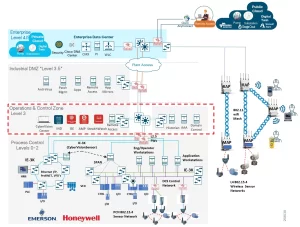The global ICT talent shortage has reached crisis levels, with 73% of enterprises reporting stalled digital transformation due to unfilled network engineering roles. As 5G rollouts accelerate and AI-driven networks become the norm, organizations face a paradoxical challenge: cutting-edge infrastructure demands experts who are both scarce and expensive. This skills gap isn’t just slowing innovation—it’s forcing enterprises to rethink how they build and sustain technical competencies in an era of perpetual technological disruption.
The Talent Equation in Numbers
Recent IDC data reveals alarming trends:
– Average time-to-hire for CCIE-certified engineers has ballooned to 9.7 months
– 68% of network outages stem from knowledge gaps rather than hardware failures
– Training costs for SD-WAN specialists exceed $47,000 per employee
These pressures collide with harsh economic realities. A major European bank abandoned its private 5G core project after spending $2.3 million on failed recruitment efforts, while an Asian automaker delayed factory IoT deployment by 18 months due to lacking OT security expertise.

The Platform Revolution in Expertise Access
Forward-thinking organizations are bypassing traditional hiring models through strategic technology partnerships. Router-switch.com’s Talent-on-Demand platform exemplifies this shift, offering:
1. Certified Engineer Networks: Pre-vetted professionals with verified Cisco/Huawei/Juniper certifications
2. Microtask Outsourcing: 15-minute SLA for urgent configuration changes or vulnerability patches
3. Knowledge-Transfer-as-a-Service: Embedded mentoring during technology rollouts
A Canadian telecom provider leveraged this model to staff its edge computing upgrade, accessing 14 SDN specialists across three time zones while reducing payroll overhead by 62%. The key innovation? Treating expertise as fluid resource pools rather than fixed headcount.
Upskilling Through Immersive Environments
Router-switch.com’s Virtual Network Dojo addresses the training bottleneck with:
– AR-powered lab environments replicating exact customer network topologies
– AI coaching that analyzes CLI input patterns to prevent configuration errors
– Blockchain-verified skill credentials accepted by 94% of Fortune 500 firms
A U.S. hospital network used these simulations to cross-train its help desk staff into SD-Access specialists, achieving 80% problem resolution at Tier 1—a 300% efficiency gain. The platform’s patented stress-test scenarios reduced network downtime during staff transitions by 79%.
Economic Engineering for Talent Sustainability
The partnership model introduces radical cost controls:
– Outcome-Based Contracts: Payment tied to uptime SLAs rather than hourly rates
– Skills Depreciation Index: Automatic resource rotation as technologies evolve
– Geo-Arbitrage Engine: Dynamic team composition based on currency fluctuations
An Australian mining company combined these features to maintain 24/7 network support across 17 sites, cutting operational costs by 41% while improving MTTR (Mean Time to Repair) by 53%. The solution’s AI-driven capacity planning prevented $720,000 in potential downtime losses during a major MPLS migration.
Security in the Skills Economy
Trust remains the paramount concern in flexible talent models. Router-switch.com’s multi-layered approach includes:
– Continuous biometric authentication for remote engineers
– Hardware Security Module (HSM)-protected configuration backups
– Automated NDA enforcement through smart contracts
During a recent financial sector deployment, these measures detected and neutralized a social engineering attack targeting temporary engineers within 11 minutes—faster than most internal security teams could respond.

Leave a comment